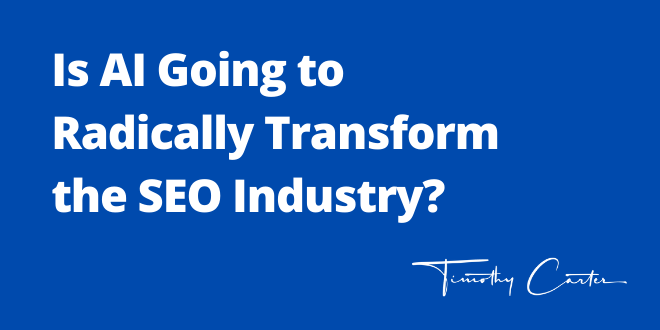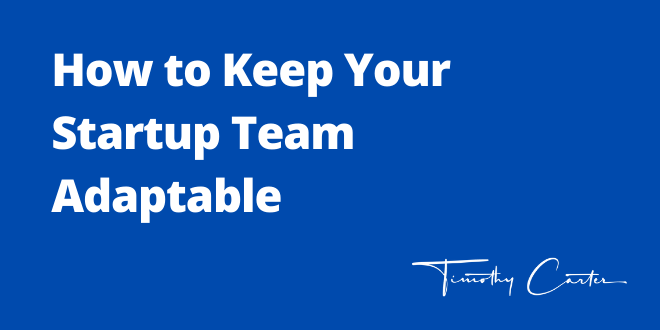
Is AI Going to Radically Transform the SEO Industry?
October 23, 2021
How to Reduce What You’re Spending on Marketing (Without Losing Results)
November 1, 2021One of the most important traits in a successful startup is adaptability.
Over time, you’ll face new competitors, and your existing competitors will launch new products and services to try and out compete you. New technologies will emerge that could drastically change how your business operates (or even render your business obsolete). Market conditions will change, and consumer preferences will change with them. And as a result of this confluence of factors, even the best-researched business plan will quickly become irrelevant.
If you’re lucky, these changes won’t have much of an effect on your core business model; you can continue operations as you have in the past and still make money. But more commonly, you’ll have two real options. You can either adapt or watch your business fail.
High-level business adaptability is in your hands if you’re leading the organization. You can make decisions like restructuring, hiring new people, rebranding or pursuing new types of clients. But if you want your organization to remain truly agile, from top to bottom, you’ll need your entire team to be more adaptable.
So how can you do it?
Build adaptability into your culture
Your highest priority should be building adaptability into your company culture. Your company’s values, perspectives and cultural norms should all favor adaptability, reinforcing this trait in all the people who work there.
This is how you can do it:
- Make adaptability a defined core value. Find some way to officially document adaptability as a focal point of the business. Some business like to solidify their internal culture with a list of core values. Others list “ideal traits” of people who work there. The precise method of incorporation doesn’t matter as much as the fact that you’re making it clear how important adaptability is to your organization.
- Consider adaptability when hiring. The best way to build a culture from the ground up is to hire people who naturally fit that culture. If you only hire punctual, time-focused people, for example, it won’t be hard to make sure the entire organization runs on time. Before hiring anyone, ask them some questions to test their adaptability; what’s a situation that required them to be adaptable in the past? How would they respond to a sudden change in their work environment?
- Encourage leaders to demonstrate adaptability. Regardless of what your stated organizational objectives are, your employees are going to follow the example your leaders set. If your leaders are adaptable, your employees will be adaptable as well. That’s why it’s important to train your leaders to be role models here; encourage them to remain flexible at all times and make adjustments to their approaches as necessary. If all your team leaders can roll with the punches and experiment to find creative solutions to new problems, your employees will follow suit.
- Build your internal messaging with adaptability in mind. Consider working the themes of adaptability into your internal messaging. For example, if you have a company newsletter, consider making improvements to it on an ongoing basis, so every issue has something new — and highlight employees who have demonstrated resilience and adaptability in their own roles.
Reward innovation
Next, make it a point to publicly reward innovative thinking and adaptability. Rewarding employees will encourage them to continue the behavior you rewarded them for; it’s a great way to increase retention among your most adaptable employees. Beyond that, it serves as an incentive for your other employees. When people see that you go out of your way to reward people who flexibly adapt, they’ll be more likely to flexibly adapt in the future.
For example, let’s say one of your best employees came in early one day and changed a commonly followed workflow to incorporate two new steps while eliminating some other steps. As a result, the process is much smoother and more efficient now, even though it took some time for employees to learn the new process. You can make a brief company announcement about the change and reward the employee with a cash bonus or a gift card to reinforce the behavior.
Institute change regularly
Finally, try to institute change regularly in your organization. If you make changes on a periodic basis, even if those changes aren’t game-changing, your employees won’t get too comfortable — and they’ll learn to appreciate change as the norm. For example, you can periodically make tweaks to workflows or even rearrange the office furniture. Even if the changes themselves are small, your employees will have to learn to adapt to them.
Over time, you’ll be able to cultivate and nurture an entire team of adaptable, entrepreneurially minded employees. Once you have that team firmly in place, you’ll be much more productive, focused and capable of innovative thinking. Even better, your entire organization will be much more resilient to the forces that may otherwise compromise your future.
Originally appeared in Entrepreneur






